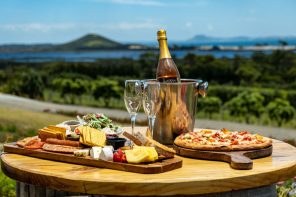This time last year, Mintel released the 2018 Global Food & Drink Trends. The annual trends reflect hot topics such as lack of trust, growing interest in self-care and the need for experiences worthy of sharing on social media. The predictions also observed how technology will change food and drink retailing and production. Before Mintel unveils its predictions for 2019, writer Jenny Zegler revisited the 2018 Global Food & Drink Trends to see how the five predictions evolved in the past year.
Full Disclosure
In our new post-truth reality, consumers require complete and total transparency from food and drink companies.
Food and drink companies have made strides during 2018 to provide more information to consumers in the hopes of rebuilding the current lack of trust in food and drink. More companies have shared where their ingredients are sourced and how products are made on-pack, online or in ad campaigns. Blockchain is one technological advancement that presents potential for brands and retailers to be transparent with consumers about every aspect of product manufacturing.
Preferential Treatment
A new era in personalization is dawning due to the expansion of online and mobile food shopping.
Personalisation is quickly becoming a reality thanks to technology. Preferential Treatment observed the opportunity for retailers and brands to leverage customer data to provide savvy shoppers with custom recommendations of products and individually targeted promotions. Consumers across markets are interested in saving money on their commonly purchased items.
Science Fare
Technology is being used to engineer solutions for our stretched global food supply.
A technological revolution is also playing out in manufacturing as industry-leading companies develop solutions to replace traditional farms and factories with scientifically engineered ingredients and finished products. This new generation of high-tech food and drink can help reduce the escalating stress on the global food and drink supply chain. Sustainability is influencing some consumers to seek alternatives to standard animal sources of protein. According to Mintel research on meat alternatives in Canada, almost a quarter of adults who use meat alternatives use the products because of animal welfare concerns while one in five Canadians indicate environmental considerations.
In 2018, plant-based and lab-made meat, poultry and fish have attracted the most attention from media and investors, sparking curiosity among consumers. Lab-grown meat appeals to 28 percent of Thai, 25 percent of Indonesian and 19 percent of Australian internet users aged over 16 who live in major metropolitan areas.
Self-Fulfilling Practices
As more consumers find modern life to be hectic and stressful, flexible and balanced diets will become integral elements of self-care routines.
Many people who feel overwhelmed by the pace and contentious tones of modern life have turned to “self-care,” a broad term for behaviours and attitudes that aim to ensure one’s physical and emotional wellness. In terms of diet, self-care often equates with eating healthy most of the time but allowing room for treats. In terms of diet, self-care often equates with eating healthy most of the time but allowing room for treats.
Personalization of diet allows for occasional treats, which often serve as emotional boosts or rewards. More than four in 10 UK adults consume unhealthy food or drink if they want to cheer themselves up, compared to less than four in 10 if they are rewarding themselves. Food and drink products can also provide self-care by giving consumers reasons to take a break during a hectic day.
New Sensations
Texture is the latest tool to engage the senses and deliver share-worthy experiences.
Creative use of texture is the latest opportunity for food and drink manufacturers to respond to consumers’ desires for food and drink experiences that are worthy of sharing on social media. Advancements in texture can help showcase the freshness or healthiness of a product.






